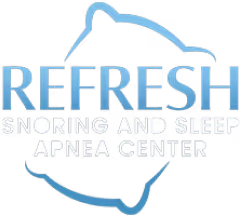Did you know that sleep apnea can have a significant impact on your cardiovascular health? People that suffer from sleep apnea can stop breathing anywhere from 50 to sometimes even hundreds of times a night, and this will happen on repeat every single night which is why sleep apnea is sometimes known as the silent killer.
Sleep should be a time for the entire body system to shut down, repair, and recover. The heart also wants to be given some time to relax and slow down.
Now, take a moment to imagine what happens to your body when you hold your breath. Your heart rate levels rise and your O2 levels fall. Additionally, if you hold your breath for a long time (especially while awake) this can start to feel very stressful and scary. During an apnea episode, you are not breathing for at least ten seconds but can be for a minute or sometimes even longer! While you are asleep you are completely unaware that this is even happening. This state is very taxing to the body, because every time your breathing is disrupted, your body enters into "fight or flight" mode flooding the system with stress hormones.
Over time, this can lead to poor blood pressure control and cardiovascular problems like A-Fib. Plaques can build up in the blood vessels and the heart suffers. It is currently estimated that someone who is taking two or more blood pressure control medications and still does not have a good handle on their blood pressure is 98% guaranteed to have sleep apnea! Unmanaged sleep apnea can even reduce life expectancy by up to 20 years compared to those without the condition due to a greater risk of heart attack and stroke.
Additionally, sleep apnea creates fragmentation of sleep which disrupts hormone regulation and can also lead to weight-related issues. People with sleep apnea may experience difficulty in losing weight or be more prone to gaining weight due to imbalances in hunger-modulating hormones leptin and ghrelin. This can increase the desire to eat fatty foods and contribute to the development of excess weight gain, difficulty with weight loss, and even the development of type 2 diabetes.
Just remember, snoring is not the only reason to treat your sleep apnea. Both your heart and your waistline will thank you for it!
If you are looking for more information or sleep apnea treatment near Castle Rock or Denver, CO contact our office by giving us a call at 303-688-6630 !

.svg)




